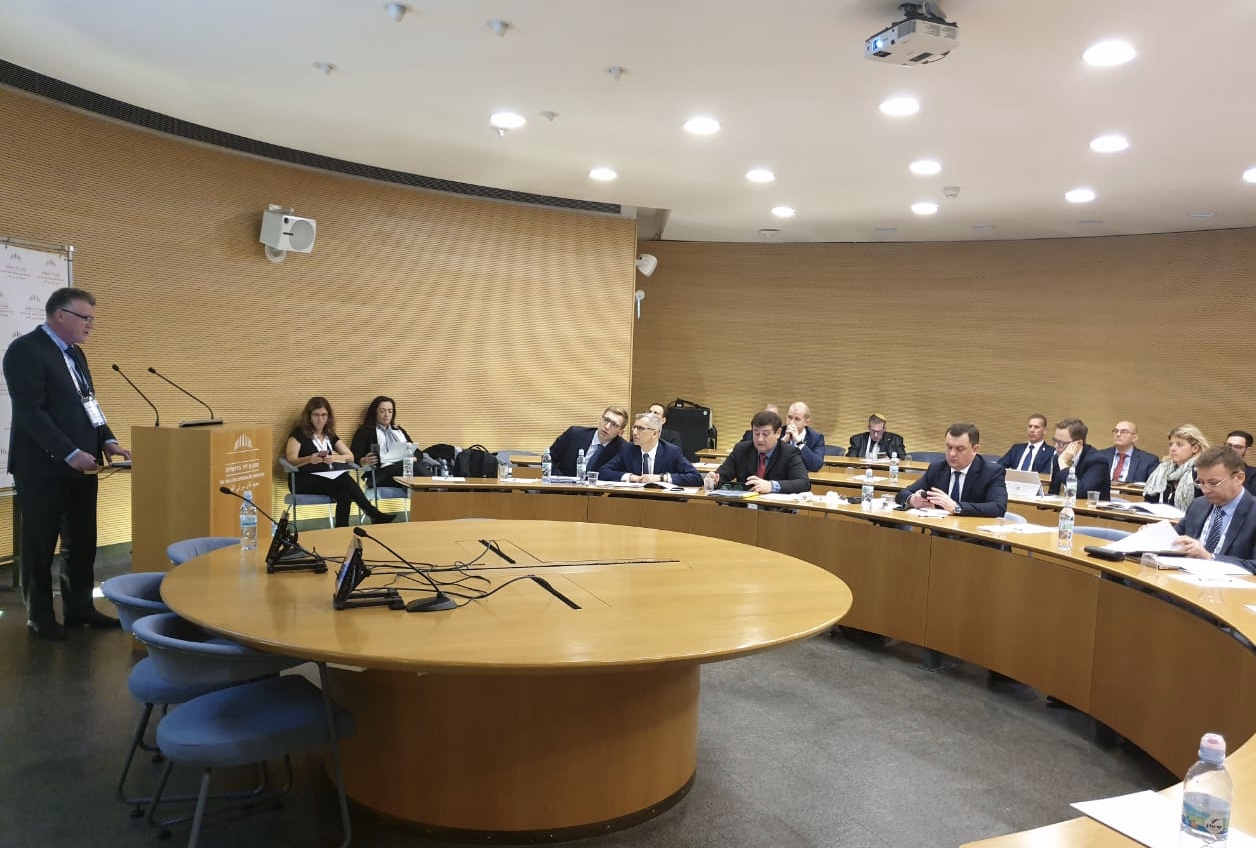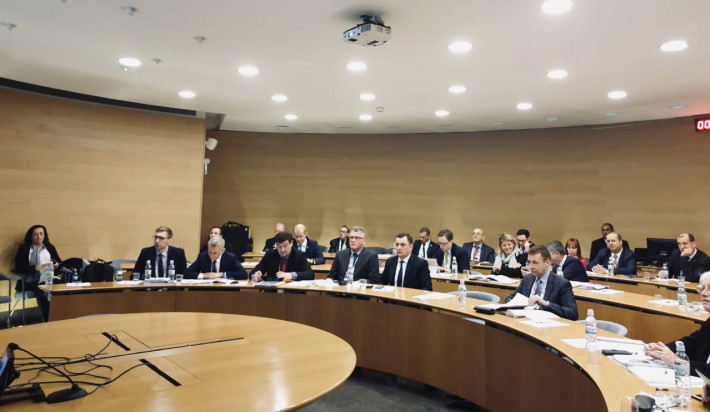When developing measures to implement the Strategy for Overcoming Povertyfor the authorities it is very important it is based on a labor, rather than on a socially-subsidized basis, with the priority given to long-term national economy development programs and ensuring a high level of employment. This was stated by the member of the Accounting Chamber Vasyl Nevidomyi at the EUROSAI-ASOSAI conference in Jerusalem. The statement was devoted to the experience of the Accounting Chamber in furthering the Sustainable Development Goals to overcome povertyin accordance with the European Social Charter.

Vasyl Nevidomyi noted that recent years had witnessed the rise of new forms of poverty in Ukraine, including abrupt poverty because of the loss of lodging, property and livelihood as a result of the armed conflict in the eastern region, poverty because of the lack of inability to access health-care services or purchase the medicine, poverty because of the indebtedness to banking institutions and high interest rates on loans when the real income of the population was decreasing.
The speaker noted that with the growth of poverty there was also a widespread sense of social injustice and lack of trust of society to most state institutions. Given the severity of this issue, overcoming poverty is one of the key tasks of the state policy in the social development of the country and needs new effective tools for solving this problem through taxation, redistribution of income, labor market policy and social support improvement.
Vasyl Nevidomyi said the state policy for overcoming poverty in Ukraine was based on modern world approaches in this area, taking into account the Sustainable Development Goals and the European Social Charter.
He pointed out that the Accounting Chamber carried out an analysis of the implementation of the Strategy for Overcoming Poverty, which indicated that there was a progress in overcoming poverty in Ukraine until 2014, but since then, because of numerous negative factors, the situation on some key indicators had deteriorated.

Overall, in Ukraine, the speaker noted, there was a significant increase in the level of absolute, relative and deprivation poverty. In 2017 9% of the population suffered from all these three forms of poverty, and the number of people who suffered from at least one of these forms of poverty was 57%.
At the same time, there were also positive developments, in particular, in 2017 the poverty rate fell due to some indicators, while the number of poor people on social assistance increased to 73.6%. These positive changes have happened primarily thanks to the minimum wage increase and the social support programs reform.
The member of the Accounting Chamber said that one of the directions of the Strategy for Overcoming Poverty in Ukraine was to prevent poverty and social exclusion among internally displaced persons (IDP).
Vasyl Nevidomyi emphasized that Ukraine had faced this problem for the first time in 2014. By the beginning of 2019, there are 1.5 million registered internally displaced persons. The internally displaced persons receive monthly targeted assistance to cover their living expenses, including housing and communal services. From 2014 to 2019, as a whole, UAH 15.9 billion (approximately $ 638 million) from the state budget was channeled towards such assistance.
The Accounting Chamber conducted two performance audits on the use of the state budget funds to provide monthly targeted assistance to IDP to cover living expenses in 2016 and 2018, which identified several challenges that need to be addressed. In particular, the integrated IDP database isn’t fully operational, because of deficiencies in determining the number of recipients and the allowance amount, the planned amount of expenditures for the allowance payment to IDP exceeded the actual need almost every month. In addition, the auditors of the Accounting Chamber point out that the authorized bodies were ineffective and unsystematic, what led to delays and underpayment of allowance, and in other cases – to overpayment, unprofitable use and loss of budget funds.
Referring to the recommendations of the Accounting Chamber, Vasyl Nevidomyi noted that the harmonization and improvement of the legislative framework and information system in this area, ensuring good planning, monitoring and reporting in accordance with the principles of transparency and accountability to society, were the necessary steps in overcoming poverty.
Vasyl Nevidomyi said the Government was recommended to abandon the policy of the socially vulnerable groups queue formation by the minimal package of social services and to create conditions for enterprises and institutions capable to offer the job that would ensure the social needs of citizens and the state budget formation. When developing measures to implement the Strategy for Overcoming Poverty for the authorities it is very important it is based on a labor, rather than on a socially-subsidized basis, with the priority given to long-term programs of development of the national economy and ensuring a high level of employment.







